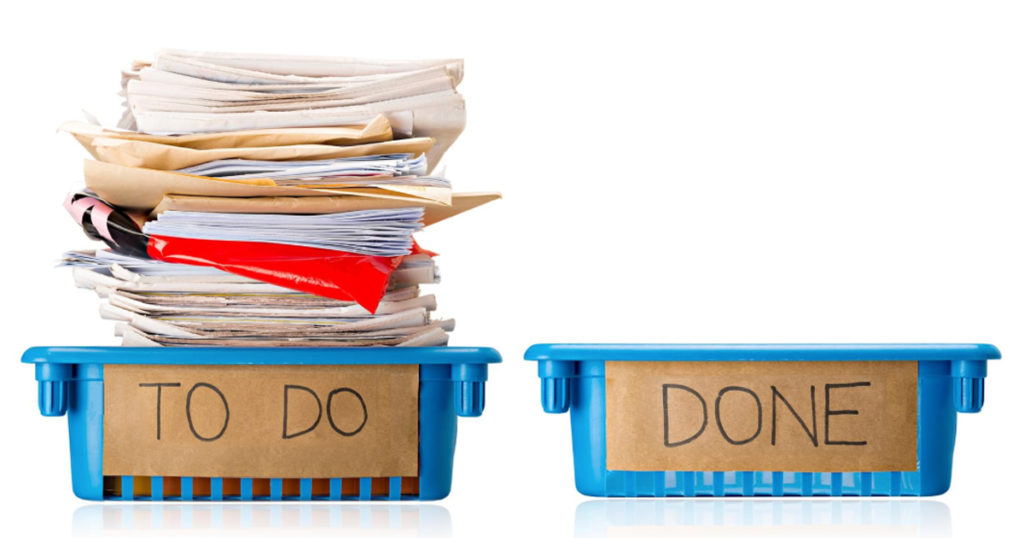You know that term paper is due soon. You’ve got to get your client documentation ready for the audit. You need to study for your EPPP licensure exam next month. So why are you struggling to get started on all that work?
For nearly all of us, procrastination, or the act of delaying things, is a part of life. Even when we’ve experienced success getting things done in the past, the desire to put something off can strike any time.
Depending on the situation, procrastination has its positives along with ways it makes life harder. Normal levels of procrastination offer us unexpected benefits, while chronic, severe procrastination can cause us harm. Here’s a rundown of the good, bad, and ugly ways procrastination impacts our lives.
The Good
You’ll be more creative and insightful. Have you heard the saying “your first guess is usually right?” Studies show that this often isn’t correct, and it’s better for us to take time to process to make the best decisions. Appropriate levels of procrastination gives us additional time to generate new creative, innovative ideas and for our subconscious to generate materials and solutions.
You’ll learn time management and productivity. Procrastination doesn’t always mean doing nothing. While procrastinating one task, you might well be getting another one done. This is where the joke comes from that students clean during final exam prep; for many this is true! Through procrastination, we can develop time management skills, such as when to prioritize what tasks and what’s ultimately most important.
Your health can benefit. Surprisingly to many, typical levels of procrastination benefit your health. Procrastinating sometimes can help you relax, reducing your stress and have lowered anxiety. A great part of procrastination is that we can all be reassured that doing it sometimes is healthy and normal.
The Bad
You might be predisposed to it. Ever wondered why your classmates or colleagues procrastinate less than you? The answer is in your genes. Research suggests that those of us who score high on impulsivity are inherently more likely to chronically procrastinate. If this describe you, you’ll need to work extra hard on prioritizing to keep your procrastination at healthy levels.
It’s harder to progress. Regular procrastination helps us prioritize, but procrastinating chronically means we’re getting stuck by not getting things done. Or we’re getting the wrong things done by cleaning when we should be studying. Avoiding critical tasks will keep us stuck in a rut, a self-defeating behavior that makes us unable to move forward in ways important to our life.
You might feel worse. Students who procrastinate chronically feel worse about themselves, studies show. You’re more likely to temporarily feel worse about yourself after a major episode of procrastination, particularly for something important like a test. To mitigate this feeling and reduce your likelihood of severe procrastination again, practice self-forgiveness.
The Ugly
Your work quality will decrease. Chronic and serious procrastination often results in lower quality work than we otherwise would have done. While some people believe they do their best work at the last second, research shows in reality this is rarely true. Students who chronically procrastinate also tend to receive lower grades.
You’re ultimately creating more work. By putting off work in extreme ways, we make work pile up and, in the end, must produce a product with more effort than through proper schedule. And in many cases, we’re not just hurting ourselves. Last minute procrastination often means our classmates, colleagues, or loved ones are picking up slack, adding to their work and potentially causing feelings of resentment.
It could harm your mental health. Chronic procrastination can have potentially serious consequences to ourselves. Severe procrastinators experience more stress, lower self-worth, perfectionism paralysis, and more illnesses. Ultimately, repeating this pattern regularly can lead to clinically significant episodes of depression and anxiety.
Feeling worried from procrastination related to your test? You don’t need to stress out any longer. Taylor Study Method has got your back with exam prep materials that will get motivate you to prepare to pass. We’re honored to be your trusted study partner.

